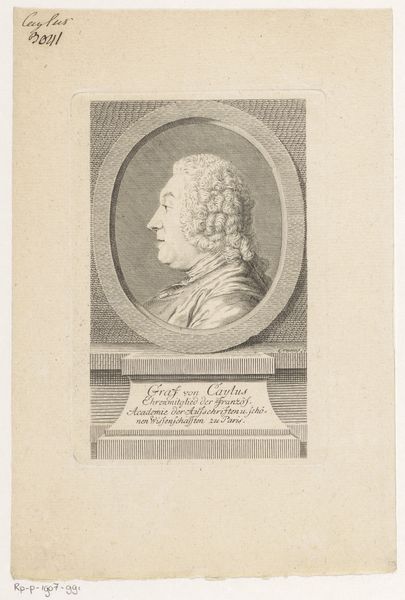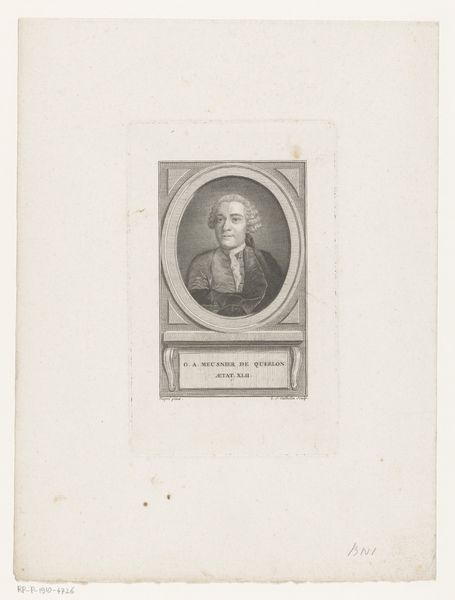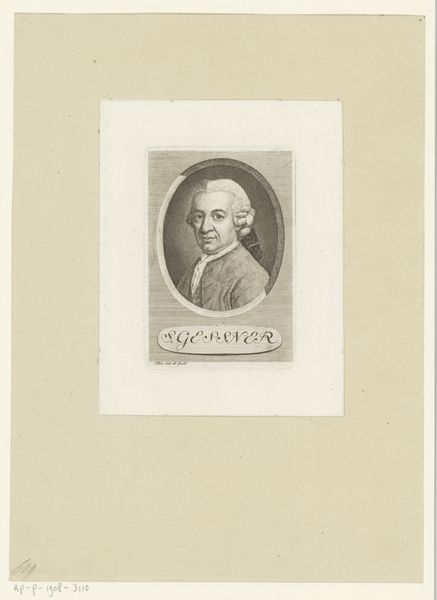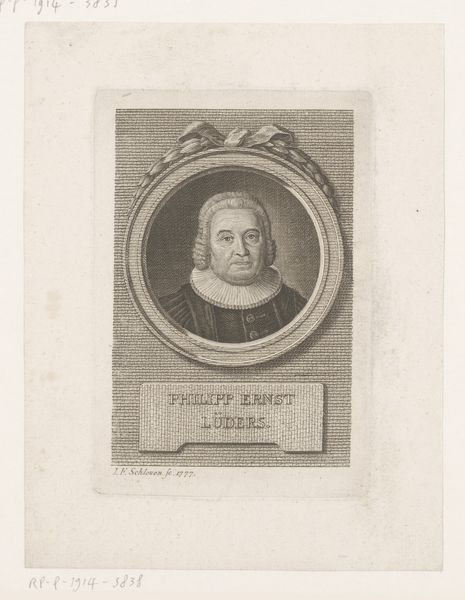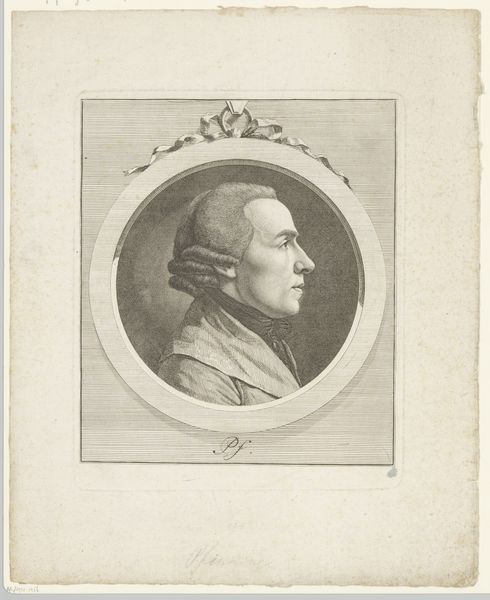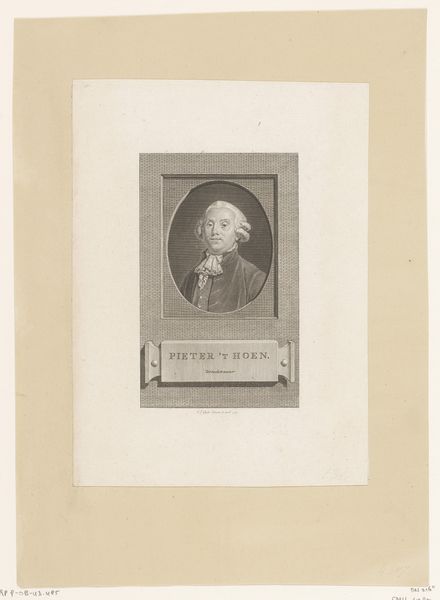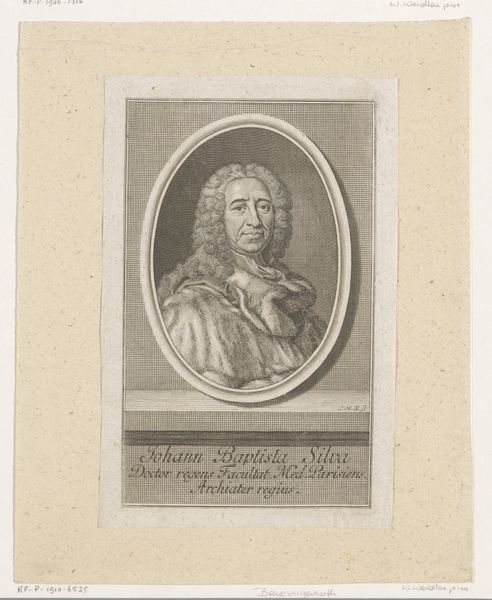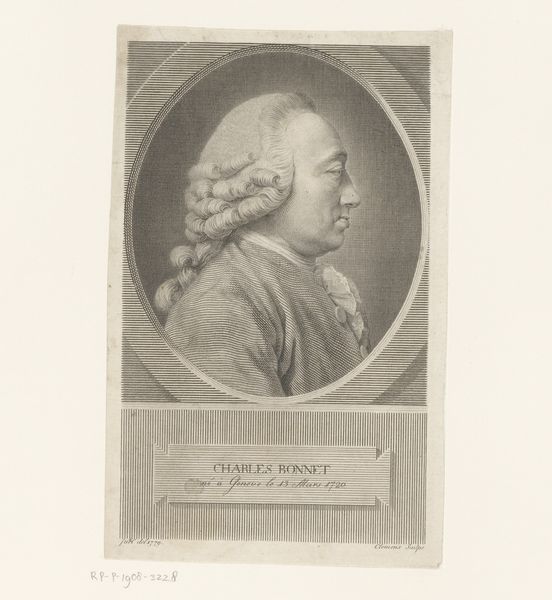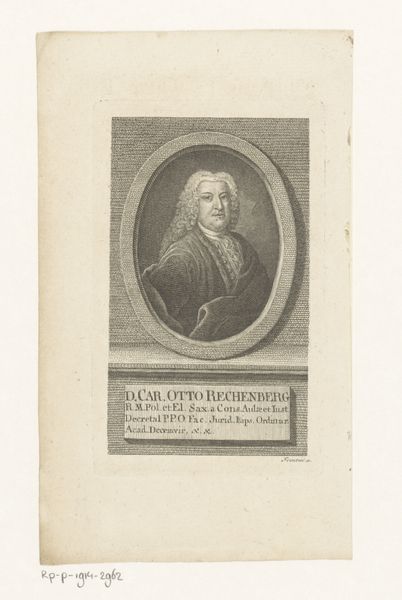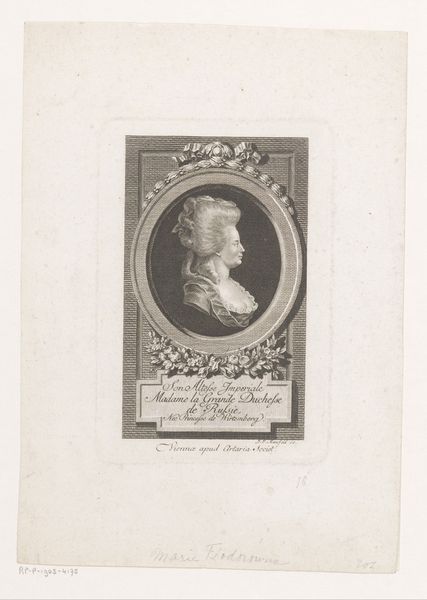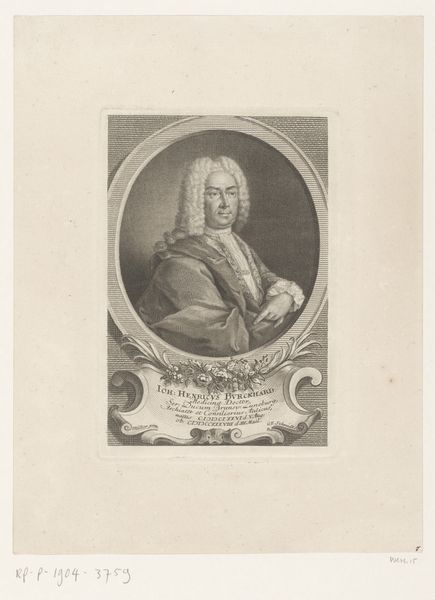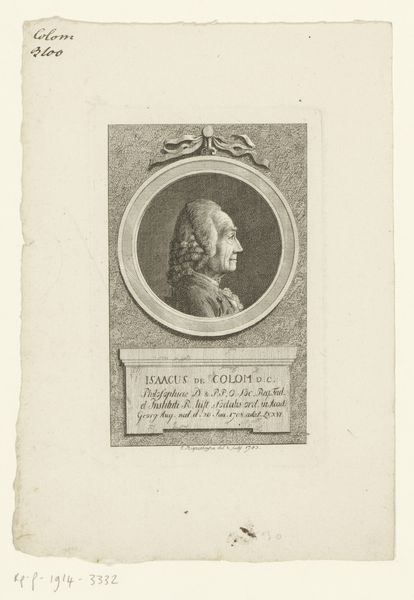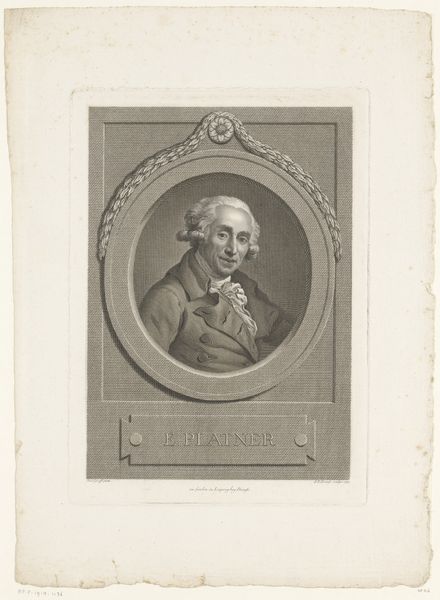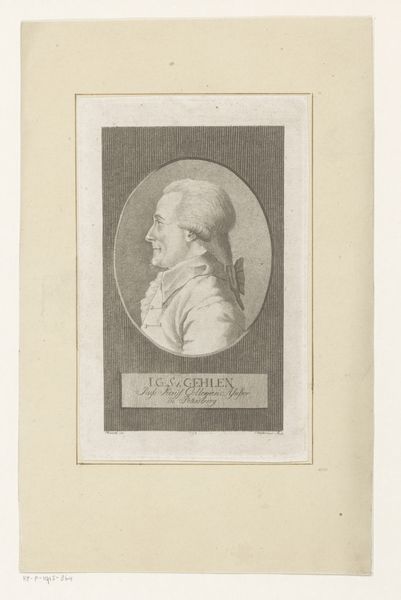
paper, engraving
#
portrait
#
neoclacissism
#
aged paper
#
light pencil work
#
light coloured
#
old engraving style
#
paper
#
line
#
history-painting
#
engraving
Dimensions: height 188 mm, width 128 mm
Copyright: Rijks Museum: Open Domain
This is a portrait of Josua Hofer, made by Johann Rudolph Holzhalb. It is an engraving – meaning the image was incised into a metal plate, inked, and then printed onto paper. Engraving was a skilled trade. The burin, a specialized tool, was used to create clean, precise lines. The depth and density of these lines give the portrait its definition, the illusion of volume, and texture. Look closely, and you'll notice the way the artist has varied the marks to describe Hofer's wig, his coat, and the delicate wreath surrounding the portrait. But beyond technique, consider the context: prints like this one were relatively affordable and could be reproduced, allowing for wider circulation of images and ideas in society. The skilled labor that went into this print reflects a growing commercial market in imagery, an early form of mass media shaping public perception in the 18th century. It is a reminder that even seemingly straightforward portraits are deeply enmeshed with systems of labor, production, and consumption.
Comments
No comments
Be the first to comment and join the conversation on the ultimate creative platform.
